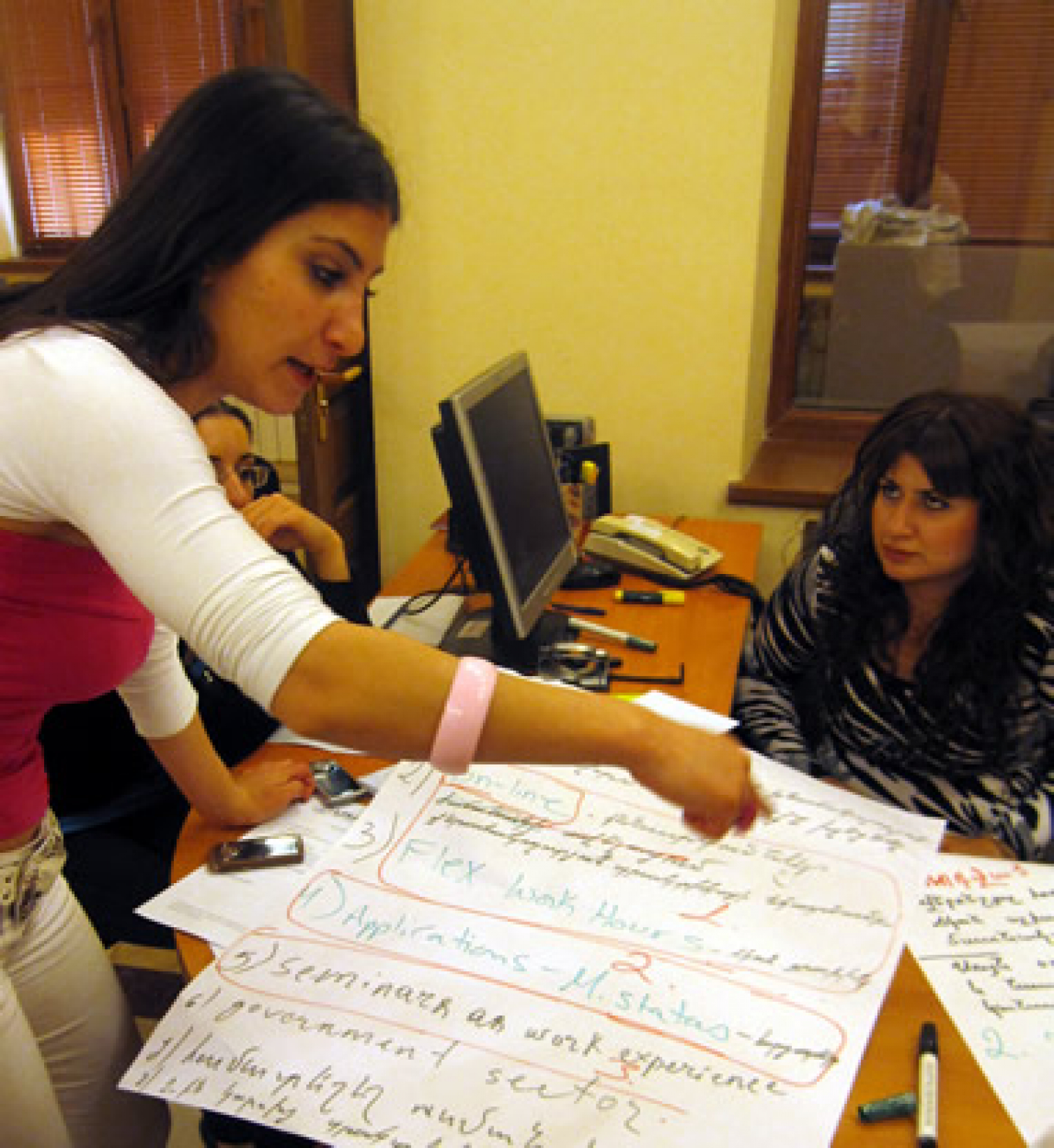
SHARE
More than 300 Armenian women from different political parties, civic organizations, government agencies and geographic regions came together for a two-day conference in Yerevan last month to discuss policy solutions to the challenges they all face. Together, they called for increasing women’s political and economic participation, better access to health care and a reduction in domestic violence.
While women make up more than half of Armenia’s population, they won just 12 of 131 seats in the last parliamentary elections in 2012. Men’s average monthly salary is more than one-and-a-half times that of women. The 2010 report by the World Economic Forum ranked Armenia 106 out of 131 countries for political representation and empowerment of women.
The “Women in Politics” conference, hosted by NDI with support from the United States Agency for International Development, produced a draft policy platform that women’s groups and political parties can use as a blueprint for change. In the political and economic areas, for example, the women proposed creation of a quota to increase women’s representation in national and local elected bodies and the passage of a gender equity law to improve business opportunities and working conditions for women.
In addition, all but a few conference participants signed a letter to the president of Armenia requesting a 30 percent quota for women on political party electoral lists. They also asked that women be placed on the lists at regular intervals, such as every other spot. Currently, 15 percent of a party list must be women, but their names are often placed near the bottom, where they are less likely to get elected. Under a list system, voters choose a party rather than an individual candidate. The number of seats the party wins is determined by its percentage of the vote, and the people who fill the seats are determined in the order they appear on the list.
Regarding health care and domestic violence, the platform proposed that the government fund preventive testing and health services for all women over 18, and that it pass legislation establishing a legal definition of domestic violence consistent with international norms. It is hard to combat domestic abuse effectively in Armenia — both legally and with public education campaigns — because people’s ideas vary on what domestic abuse is.
The women leaders plan to use the document to encourage political parties to address the issues as they create campaign platforms for next year’s parliamentary elections. It also offers potential platform planks for women who are considering running for office. Civil society groups can advocate for and monitor progress in how the recommendations are carried out.
The recommendations will be refined over the next several months by working groups focusing on the individual issues. The groups will include conference representatives, including women from both the capital of Yerevan and the regions, and political party and civil society members. Experts from academia, international organizations and government bodies also will be invited to lend their expertise.
The momentum and publicity surrounding the event had an immediate effect. In a speech the day after the conference, Prime Minister Tigran Sargsyan called for increasing the number of women in the executive and legislative branches to 30 percent. There is currently no quota for women serving in the executive branch and the few who do serve mostly as support staff.
A week after the conference, the National Assembly voted on a new election code, which included a requirement that women constitute 20 percent of party lists and, for the first time, that every fifth candidate after the second spot be a woman. These quotas would be some of the most progressive in the region. But there are two ways that parliamentarians are elected: by party list or by single member district. In the latter arrangement, a candidate runs to represent the district and its residents rather than the political party. The Armenian parliament is comprised of 56 single member district representatives and 75 members from party lists.
The draft election code also helps women seek single member seats by reducing the fee to run from 2.5 million to one million Armenian dram ($6,602 to $2,641). This provision will encourage less-established candidates with fewer resources, which women often are. In the last parliamentary elections, only five women competed for this type of seat and none was elected. The draft election code has passed the parliament and is awaiting the president’s signature.
Related:
- Spotlight on Armenia»
- Georgian political parties agree to "win with women"»
- Women in Pakistan identify vital issues for party platforms»
- National Platform for Women launched in lead up to Iraqi elections»
Pictured above: Women split into small groups to draft parts of the platform.
Published June 24, 2011


